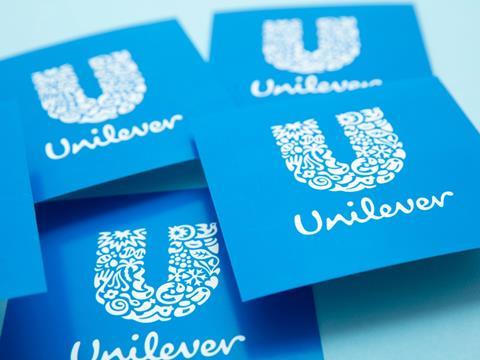
Unilever – one of the world’s largest FMCG brands – recently made a number of major updates to its packaging sustainability objectives. Why has this move caused so much controversy, what does it actually mean in practice, and could it signal change across the rest of the packaging value chain?
This content was originally sent to Packaging Europe members in The Bulletin – a weekly newsletter with articles like this, as well as lots more original content. To receive a brand-new edition of The Bulletin every week, plus an exclusive range of reports, briefings and events, click here to become a member.
To start with, it’s worth reminding ourselves about what Unilever’s sustainable packaging goals looked like before this. In 2017, the company earmarked a number of objectives that it would attempt to complete before 2025 – including making 100% of its packaging recyclable, reusable or compostable, reducing virgin plastic packaging use by 50%, and incorporating 25% recycled plastic in its plastic packaging.
For what it’s worth, the company will probably hit that last goal – it claims to have used 22% recycled plastic in 2023, up from 21% in 2022. The rest, though, have been jettisoned.
Unilever now plans to reduce its use of virgin plastic by 30% by 2026, and 40% by 2028 – as well as revising the projected end date of its goals to make 100% of its plastic packaging reusable, recyclable or compostable to 2030 for rigid solutions, and 2035 for flexibles. The distinction between different types of material is an important acknowledgement of how hard to recycle flexibles sometimes are, and how much work is still needed in this sector.
These revised goals form an important plank of Unilever’s new ‘Climate Transition Action Plan’, which was passed at the company’s AGM last Wednesday with 98% approval from shareholders. The AGM, however, did not proceed without incident – activists from Greenpeace fired confetti cannons in protest at the revised packaging objectives.
So, why did Unilever decide to adjust these goals? The answer to that question depends on who you ask.
One camp, which certainly includes those Greenpeace activists, would argue that this is a textbook example of a brand prioritising its bottom line over the environment as a result of lacklustre financial performance in recent times – and shareholder pressure.
Others have praised this news as a pragmatic recalibration. Alison Taylor, clinical professor at NYU Stern School of Business, proposes that that “more sober, restrained, realistic commitments on fewer issues that the company can actually influence is good news”; that “corporate responsibility as PR is over, and we should appreciate this [as] progress”.
The company itself seems to concur with the latter view. In a recent interview with Bloomberg, Unilever’s CEO, Hein Schumacher, argued that the current sustainability environment could not support the company in achieving its prior goals. “On plastics, you need governments, you need retailers, you need partners in the petrochemical industry,” he said. “You need recycling systems that match.”
Of course, the wider context here is a change in Unilever’s leadership structure. Under previous CEOs Paul Polman and Alan Jope, sustainability and corporate ethics were brought to the fore – an approach that regularly disgruntled some shareholders.
And if we zoom out even further, it’s fair to say that Unilever probably won’t be the last major brand to revise its packaging sustainability targets. More than a year ago, Gartner’s John Blake argued in an article on Packaging Europe that: “In our research, we find that many organizations have indiscriminately selected high-level or trending sustainable packaging goals to be their corporate commitments. This has resulted in many organizations facing the inability to deliver these goals by their targeted dates.”
And it’s not just companies – in the past few weeks, Scotland’s national government has been plunged into crisis over plans to water down its own net-zero objectives.
In some ways, at least, it does feel like we may be headed for a recalibration – a favouring of pragmatism over idealism. But, in this context, it might be worth bearing the words of a former Unilever CEO in mind: “Principles are only principles if they cost you something.”
If you liked this story, you might also enjoy:
How are the top brands progressing on packaging sustainability?
The ultimate guide to global plastic sustainability regulation














No comments yet